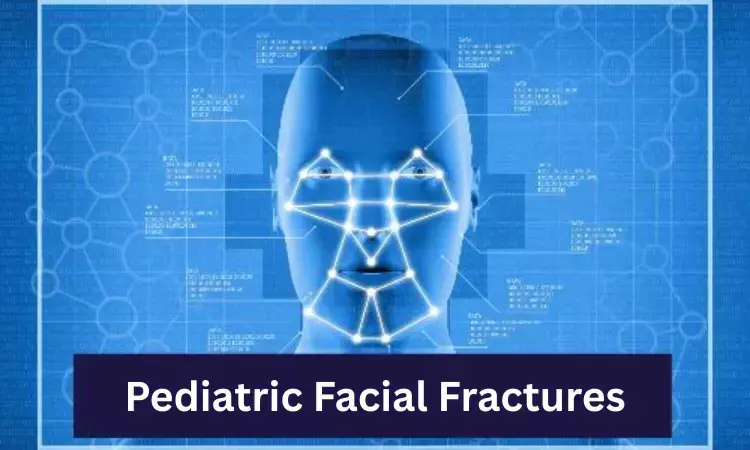- Home
- Medical news & Guidelines
- Anesthesiology
- Cardiology and CTVS
- Critical Care
- Dentistry
- Dermatology
- Diabetes and Endocrinology
- ENT
- Gastroenterology
- Medicine
- Nephrology
- Neurology
- Obstretics-Gynaecology
- Oncology
- Ophthalmology
- Orthopaedics
- Pediatrics-Neonatology
- Psychiatry
- Pulmonology
- Radiology
- Surgery
- Urology
- Laboratory Medicine
- Diet
- Nursing
- Paramedical
- Physiotherapy
- Health news
- Fact Check
- Bone Health Fact Check
- Brain Health Fact Check
- Cancer Related Fact Check
- Child Care Fact Check
- Dental and oral health fact check
- Diabetes and metabolic health fact check
- Diet and Nutrition Fact Check
- Eye and ENT Care Fact Check
- Fitness fact check
- Gut health fact check
- Heart health fact check
- Kidney health fact check
- Medical education fact check
- Men's health fact check
- Respiratory fact check
- Skin and hair care fact check
- Vaccine and Immunization fact check
- Women's health fact check
- AYUSH
- State News
- Andaman and Nicobar Islands
- Andhra Pradesh
- Arunachal Pradesh
- Assam
- Bihar
- Chandigarh
- Chattisgarh
- Dadra and Nagar Haveli
- Daman and Diu
- Delhi
- Goa
- Gujarat
- Haryana
- Himachal Pradesh
- Jammu & Kashmir
- Jharkhand
- Karnataka
- Kerala
- Ladakh
- Lakshadweep
- Madhya Pradesh
- Maharashtra
- Manipur
- Meghalaya
- Mizoram
- Nagaland
- Odisha
- Puducherry
- Punjab
- Rajasthan
- Sikkim
- Tamil Nadu
- Telangana
- Tripura
- Uttar Pradesh
- Uttrakhand
- West Bengal
- Medical Education
- Industry
IMF Screws Deemed Safe for Pediatric Facial Fractures: Study

A new study published in the Journal of Craniofacial Surgery has shown that intermaxillary fixation (IMF) screws are a safe and effective method for stabilizing pediatric facial fractures, with no significant complications observed during long-term follow-up.
Researchers evaluated pediatric patients who underwent IMF screw placement for facial trauma and found that the technique provided reliable fracture stabilization without disrupting dental development or causing long-term adverse effects.
This challenges previous concerns about using screws in growing bones, particularly in children with developing dentition. According to the study, no instances of dental root damage or delayed eruption were found, and the IMF screws were well tolerated throughout the recovery period. Patients were followed up over extended periods, allowing researchers to assess both immediate and late-stage outcomes, further reinforcing the screws’ safety profile.
The use of IMF screws also offered advantages such as reduced operative time, easier intraoperative placement, and improved oral hygiene access compared to traditional wiring techniques. These benefits make IMF screws a compelling alternative in managing pediatric maxillofacial injuries, especially in cases requiring quick stabilization and minimal invasiveness.
The authors note that careful placement by experienced surgeons remains essential, but their findings strongly support broader adoption of this technique in pediatric facial trauma cases. As facial injuries in children can have lasting developmental and functional implications, safe and efficient stabilization methods like IMF screws can significantly improve long-term outcomes while minimizing procedural risks. This study provides valuable data for surgeons and pediatric trauma specialists when determining the best treatment approach for young patients with facial fractures.
Dr. Shravani Dali has completed her BDS from Pravara institute of medical sciences, loni. Following which she extensively worked in the healthcare sector for 2+ years. She has been actively involved in writing blogs in field of health and wellness. Currently she is pursuing her Masters of public health-health administration from Tata institute of social sciences. She can be contacted at editorial@medicaldialogues.in.
Dr Kamal Kant Kohli-MBBS, DTCD- a chest specialist with more than 30 years of practice and a flair for writing clinical articles, Dr Kamal Kant Kohli joined Medical Dialogues as a Chief Editor of Medical News. Besides writing articles, as an editor, he proofreads and verifies all the medical content published on Medical Dialogues including those coming from journals, studies,medical conferences,guidelines etc. Email: drkohli@medicaldialogues.in. Contact no. 011-43720751


